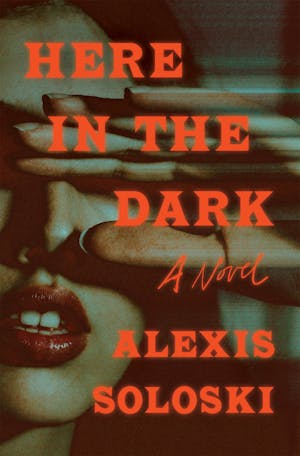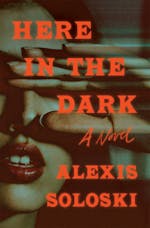1NUMBER WITHHELD
When the phone rings, on a damp November Wednesday, I’m in the bath. I have just returned from the bank, depositing the check—overlarge, on thick, cream stock—from the executor of my aunt’s estate and arranging its disbursement. I had not seen my aunt in years, had barely corresponded with her beyond compulsory birthday and Christmas cards. Death came for her punctually and without prelude, which must have met with her approval. Though she may have preferred a place more fit and private than the parking lot of a Hannaford on a late afternoon in May, just before the dinner rush. A heart attack, proof at last that she had a heart at all, her body falling in a way, I was told, that set off her car alarm. She would not have liked the noise. I had not expected an inheritance. But as it happened, she divided her fortune—a small savings account, a smaller civic pension, the proceeds from the sale of her house—between me and a local wildlife charity. She had always favored birds over people, and in this I could not blame her. Though I don’t really care for birds.
I do not need her money. But taking it seemed easier than any alternative. So I listened, a close-lipped smile mortared to my face, while an adviser at the bank, a sweaty, pink-cheeked white man in a striped tie that I would swear in any court was a clip-on, lectured me, in a voice like a leaking faucet, about funds and bonds and certificates of deposit.
“Let’s just do whatever is most safe,” I finally told him. Because it was not what he wanted to hear. And because I am safe about some things.
My aunt, however distant—she lived in New Hampshire, which in New York City terms might as well have been the moon—was the last person in my world who knew my mother, the last person but one who knew me as I was before. I might have received her death as an invitation to step more completely into the small life that I have made for myself or to step into some new larger one, unburdened now. To live, at last, in full. And some part of me—yearning, wild still—must want that. But when the news of her passing reached me, I stepped nowhere except along my typical routes, into assorted theaters and then back to my apartment with an occasional low-lit bar to vary the scene. The executor also sent me two yellowing photo albums, which showed my aunt and my mother as kids and then adolescents and then young women—long limbed, freckled, alive. I paged through them once, then shoved them onto the tallest shelf of the closet, where they have remained.
If I were the sort of person who allowed myself much in the way of an emotional life—in daylight hours, anyway—I suppose I would have felt lonely, orphaned, unmoored. Instead I applied myself to the notebook page and the laptop screen as I never had before, writing and rewriting until each paragraph glittered, diamond bright and twice as sharp, which was only slightly sharper than my usual. This is the curse and blessing of the critical instinct, the irrepressible impulse to report the truth of a work of art, no matter whom that truth offends. These shows invited me. They invited criticism. They should have been finer, sturdier, more plausible. They weren’t. And here I was to tell them so, angling for the magazine’s chief critic’s job with every quip and censure.
That job has stood open for two months now, ever since Crispin “Crispy” Holt, scion of a wealthy Boston family, who fled Princeton as soon as he had his first taste of the Living Theatre (and some extremely high-grade LSD) and had written for the magazine for decades, finally announced his retirement. Rumor has it he shipped his inherited wealth to some Caribbean tax haven, where he can enjoy flashbacks and the occasional cabana boy in tropical ease. I can’t confirm this rumor. As a female who lacks a four-octave range, I was beneath Crispy’s notice. But for Roger, my editor, I am a sort of protégée, a local girl made something better and more clickable than good. I was certain he would tip me for the job straightaway. Instead he alternates my columns with those of the other junior critic, Caleb Jones. Caleb has a newly minted dramaturgy MFA, a retina-scarring smile, and the aesthetic discernment of a wedge salad. Me, I have taste for days. And a brisk, prickly style. Roger will see sense. Eventually.
On this morning, the adviser eventually presented me with a stack of papers and I initialed and signed, initialed and signed, then handed back his pen (I have better ones at home) and drifted out onto the pavement and up the five flights of stairs to my apartment. I poured a drink, because my aunt did not approve of drink and because I have been drinking more lately—I have to, the pills don’t work the way they used to—and ran a very hot bath, to feel something or nothing or both at once, tipping my head back until water filled my ears and the city went quiet and remote.
But that cell phone ring—the shrill factory setting I have never bothered to change—sounds, then stops, then sounds again, reaching me even here. Scam callers rarely phone twice. It could be Roger, I tell myself, needing me for some final query or to workshop some display copy. So I move to answer it.
Drops skitter against the porcelain as I stand, wobbly legged, bracing myself against the wall until my blood pressure evens, shaking the red-black spots from in front of my eyes. Wrapped in a thin towel, I shuffle to the living room—I live in a studio, so really, it’s the only room—and reach into my bag for the phone. I’ve missed two calls from the magazine. The main desk, not Roger’s extension. I dial and Esteban, our receptionist, answers.
“It’s Vivian,” I say, lowering my voice toward the gothic. “You rang?”
“Gorgeous,” he chirps, “where you been?”
“East Tenth. Roaming the halls in my satin peignoir and mourning your loss to womankind.”
He giggles at a pitch that would shatter crystal. He knows my apartment isn’t large enough for halls. He also knows that I don’t own a single peignoir.
“Poor bebita,” he says. “Well, maybe I got you a consolation prize. A man keeps calling for you. Has a sexy voice. Like very sexy.”
“You didn’t give him this number?” I say, wrapping the towel more tightly.
“Tch, bebita. Credit. Please. Tried to tell him your email, but he says he wants to talk to you.”
“Ten to one he’s a publicist.”
“A sexy publicist.”
“Absurd. Impossible. Against every natural law.”
“Maybe, bebita. But he is your problem now.”
He gives me the man’s name, David Adler, and his phone number, which I record sulkily in the nearest notebook, my dripping hair dotting the page like tears. I smile my way through “Thanks” and “Talk soon” and then let my face slacken as the call ends. Having fumbled into clothes, I slouch into the armchair, balancing the laptop on my thighs. I search my email for “David Adler,” then repeat the search in the trash folder. It returns no results. So he isn’t linked to any recent play or musical. At least none I’ve heard of. Which must make him an untried director or a junior publicist set on me reviewing some show so far off Broadway that the subway runs out of track. My uninterest is profound. You can see only so much failed theater and live to tell.
Yet I think of what Roger keeps saying. How he would prefer more sympathy in my reviews or, failing that, a warmer relationship with the artistic community. He calls it the “Let’s Not Be Such a Withholding Bitch, Shall We, Kiddo?” plan. Roger has been to sensitivity training. The training did not take.
Warmth is not my forte. As far as the rich palette of human experience goes, I live on a gray scale. Aristotle said that drama was an imitation of an action. I am, of necessity, an imitation of myself—a sharp smile, an acid joke, an abyss where a woman should be. For a decade and more I have allowed myself only this lone role, a minor one: Vivian Parry, actor’s scourge and girl-about-town. I don’t play it particularly well.
Except when I’m seeing theater, good theater. When I’m in the dark, at that safe remove from daily life, I feel it all—rage, joy, surprise. Until the houselights come on and break it all apart again, I am alive. I know myself again. Here is a dream I often have: I’m walking the streets of Times Square and I’ve lost the address of the theater I am meant to attend, so I keep wandering, usually in the rain, faster now as the time moves closer to curtain, wet through, up one block and down the next, just wanting and wanting, without remedy, without end.
The profession of theater critic isn’t especially necessary or exalted. Here is P. G. Wodehouse on reviewers: “Nobody loves them, and rightly, for they are creatures of the night.” But it is the only thing I am good at. The only survivable thing. And I want to practice it with more choice in what I see and what I don’t, more space to take in art through ear and eye and strange neuronic tangle and make sense of what results, more opportunities to feel real, even for just a few hours at a time. I am firmly in my thirties now, older than my mother was when she had me, and I would welcome some confirmation that I have not wasted my life. That I was right to choose to have a life at all. Full benefits wouldn’t hurt either. So if a call is what it takes to get the job, I can make it. With Roger’s advice in mind, I tap in David Adler’s number, confident in the blocker I’ve installed on my phone. On his screen all he will see is “Number Withheld.”
He answers before the first ring has finished.
“Hello,” I say. “This is Vivian Parry. You’ve been trying to reach me?”
David Adler isn’t a publicist. Or a director. He’s a media studies master’s student with a breathy tenor—a clarinet with a broken reed—that I find entirely resistible. His thesis, he tells me, centers on critics—their influences, their preferences. He’s eager to include a theater critic, especially a female theater critic, especially a younger one, there are still too few women writing, aren’t there? He has read my work for years and please will I meet with him? Please can he interview me?
Copyright © 2023 by Alexis Soloski






